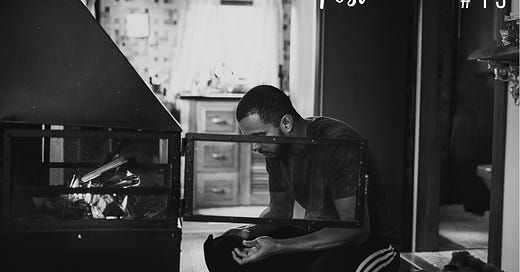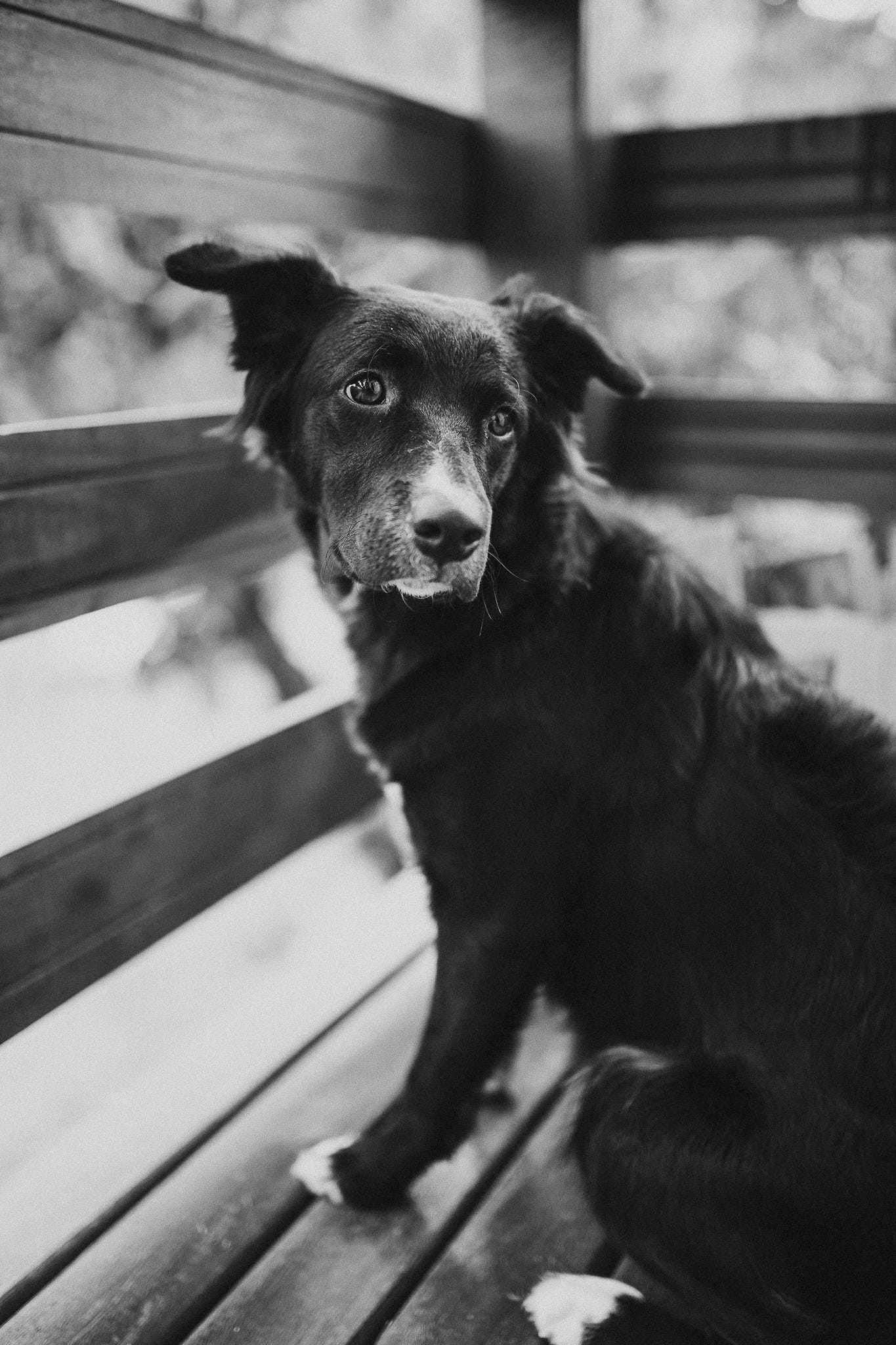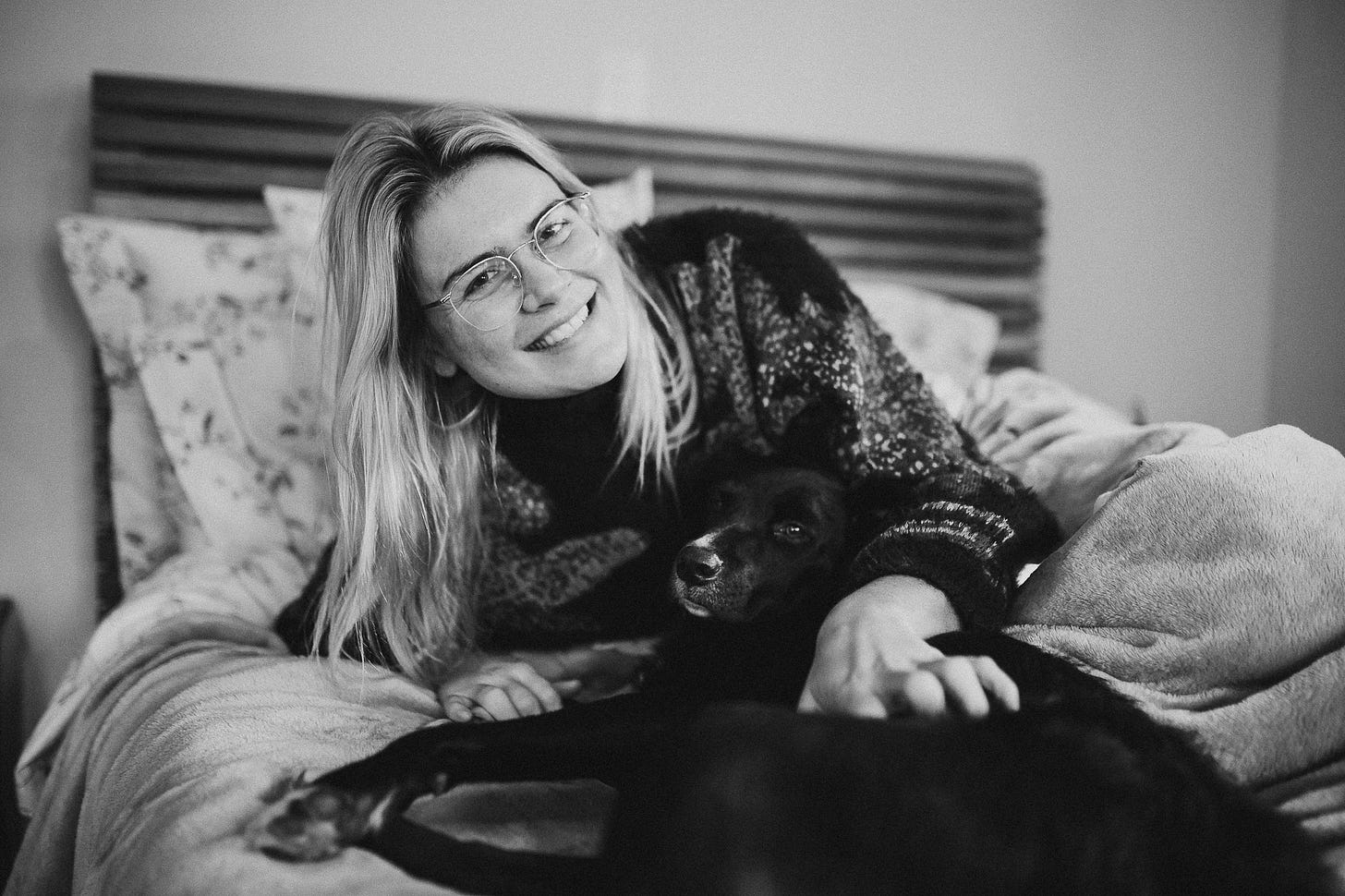Hey everyone,
A particularly isolating thing about depression is that it feels impossible to convey the extent to which one’s suffering has become inescapable. Today's essay explores this conundrum drawing upon The Depressed Person by the late David Foster Wallace* , Aftershocks: A Memoir by Nadia Owusu, and two pieces by Rachel Cusk: Second Place and The Last Supper: A summer in Italy. It also includes photos from a little getaway to Visconde de Mauá, a waterfall-laden village in the mountains.
As always, thank you for being here and reading along. It’s striking to me that I know less than 1/4 of you personally. Whether you’ve been following along since my initial foray into creative writing in 2019 or recently subscribed, I'd be delighted to hear from you – send me a note, heart this post, write a comment, and if you like this edition of Postcards on Life why not share it?
Until next time – beijoes e blessings do Rio,
Jodi
* 💭 When an artist has an immoral past, it raises some questions:
Is it possible to study their work without endorsing them?
Can we denounce their harmful actions and still celebrate their art?
Or, should we comment on why they’ve been shunned and only uphold the work of Generally Good People?
Personally, my ethics are arbitrary at best. Despite an abusive record with his former partner, author Mary Karr, I chose to reference the work of David Foster Wallace in this essay because I love it. I not infrequently elect to listen to Michael Jackson, though Kevin Spacey and Bill Cosby make me want to puke. So that’s where I’m at. Here’s what Roxane Gay has to say about this historic question and manages to convincingly suggest it’s not as big of a dilemma as we may think…
What do you think? Share in comments below👇
"The depressed person was in terrible and unceasing emotional pain, and the impossibility of sharing or articulating this pain was itself a component of the pain and a contributing factor in its essential horror."
writes David Foster Wallace in the opening line of his 1997 essay, The Depressed Person. The first time I myself read this essay, I related to the protagonist’s long-winded, unruly preoccupations and obsessive calculations regarding just how much she may be straining her “Support Network”. The essay immediately brought me back to a dark reality of the disease: how awful it is that everything is so awful or irrelevant, pointless or excruciating, numbing or physically undeniable, exhausting or insomnia-inducing. And that’s just the crux of it: it’s tricky to contain the nebulous albeit all-consuming madness of despair, loneliness, hopelessness, and meaninglessness.
Depending on when I considered my depressed predicament, it could be due to any number of things – abandonment and traumas from my childhood; unresolved family problems (maybe this was genetic?); unrealized dreams I, somehow, seemed to be forcibly distancing myself from etc. etc. etc. But what was wrong was so deeply manifest. These were simply instantiations.
After nuancing contributing factors de jour, I found myself summarizing what it ultimately amounted to: “it’s hard to explain, but really I just feel so fundamentally at odds with my life and everything in it.” This may be why some claim that depression is ultimately about a loss of control1. Regardless of how it comes about though, once negativity crystallizes into a mindset, effectively sustaining a low, miserable mood, it takes a lot of intervention methods to feel better.
Treating symptoms is one thing, but equipping ourselves with new beliefs, thought patterns, and resources to stave off depression’s future likelihood is another. It’s why, as clinical psychologist Dr. Emily Anhalt notes, it’s important not to reduce depression to a chemical imbalance. As Nadia Owusu reminds us in Aftershocks: A Memoir,
“While we are often led to believe that mental illness medications work by correcting underlying biological abnormalities, my psychiatrist told me that, unlike the treatments for most other kinds of diseases, they induce altered states. They do not cure mental disorders. They treat symptoms by covering them up with something else.”
Intuitively, we know our well-being includes more than quantifiable mood scores. It includes abstractions too – things like hope, faith, purpose, and meaning. The challenge is existential concepts are not just antidotes to mental illness. They can also be triggers. Depending on where you’re coming from, meaninglessness can be a blessing or a blunder.
Considering one’s place in the universe is a strange thing. At times, it can feel like the most important question. Others, irrelevant and self-indulgent. But when you’re depressed, it can be dangerous.
Reflecting on why she had never followed up with her psychiatrist’s advice to find a therapist, Nadia Owusu articulates the risk for harm:
“I didn’t want anyone digging around in my mind. They might not know when to stop. They might go too far and break the mantle that protected the hot, molten core. My psychiatrist never cracked the surface. She only asked stock questions she read from a list on a clipboard.”
But even if we’re “functional”, recovered, or otherwise basically alright, the value of scrutinizing existence itself is worth analyzing.
Writing in one her memoirs, The Last Supper: A summer in Italy, Rachel Cusk shares her own affliction with skeptical, “do I matter?” questions when she happened on an advertisement for a Bible course:
"...It was a photograph of a man in climbing equipment standing in sunlight on the pinnacle of a mountain. I was surprised, almost affronted, by the caption, which read: 'Is there more to life than this?' I wasn’t entirely sure there was, nor ought to be. But I pondered it all the same. It had a profound effect on me, though not quite the one it intended. Whenever I thought of it, I felt myself drawing to the threshold of a revelation, a realization so large that it was difficult to see its full extent."
In my “recovery journey” I landed at a similar place. I’ll never forget sitting across from my psychotherapist, ruminating on a kaleidoscope of problems that only beget more confined problems, when she offered this: “why does it all need to mean so much, Jodi?” Making our life meaningful is different than abstracting the meaning of life itself.
And so with the help of Escitalopram, then Sertraline, then back to more Escitalopram and the guidance of professionals, I started to work on destabilizing normative expectations, embracing meaninglessness as an opportunity for creativity, and accepting “ups and downs” as an inescapable part of an impermanent whole.
Life, as we experience it, is unsettling, but what’s wrong with that?
For me, it serves as an important reminder that I can’t accomplish my way out of hardships and disappointments. The beautiful and the tragic don’t cancel out, so the best I can do is learn how to make peace with it all and draw boundaries that make me feel safe and supported.

People say it’s the simple things in life that matter the most, but I don’t think that’s quite right. I think it’s our things, and we simply happen to have a lot of them in common.
Like reading, writing, making art, having a couple of drinks and exploring nature with loved ones, and playing with our pets. Anything that eliminates distance within ourselves and from others, as Rachel Cusk describes in Second Place:
“For the first time… I considered the possibility that art – not just L’s art but the whole notion of art – might itself be a serpent, whispering in our ears, sapping away all our satisfaction and our belief in the things of this world with the idea that there was something higher and better within us which could never be equalled by what was right in front of us. The distance of art suddenly felt like nothing but the distance in myself, the coldest, loneliest distance in the world from true love and belonging. Tony didn’t believe in art – he believed in people, their goodness and their badness, and he believed in nature. He believed in me, and I believed in this infernal distance in myself and in all things, in which their reality could be transmuted.”
The ineffable, I’ve come to believe, need not be alienating.
I don’t know how to talk about depression, without trying to say something.
I suppose I should end this off with some official statement that I am not a mental health professional, so I will. Please seek professional help if you are experiencing depression’s often contradicting symptoms. If you are in the Toronto area, I would be happy to share more about my experience navigating access to mental health from GPs and private psychotherapists to public group therapy programs at the Centre for Addiction and Mental Health.
Most recently, I came back to this hypothesis through Aftershocks: A Memoir when the author, Nadia Owusu, cites William Styron and shares a passage from his memoir Darkness Visible: “our perhaps understandable modern need to dull the sawtooth edges of so many of the afflictions we are heir to has led us to banish the harsh old-fashioned words: madhouse, asylum, insanity, melancholia, lunatic, madness. But never let it be doubted that depression, in its extreme form, is madness.” p. 46. That said, I think it’s fairly intuitive that when you feel at peace with the parameters of your self-control, you’re generally doing alright. But when you feel stuck or in a rut – when you don’t feel in control – you feel blue. You feel lost… you catch my drift. It’s why Cognitive Behaviour Therapy (CBT) teaches us to observe and deliberately change our instinctive reactions and negative thoughts to improve our mood over time. Anyways, you can Google more if you think this is controversial :)











So many great concepts here Jodi! This one took me a while to engage with - there was understandable challenge in engaging with this topic. But I’m so glad I worked through that and opened myself up to this piece. There’s so many potent philosophical considerations you bring into the conversation that so often get left out of discourse on mental health and depression.
In particular, this concept truly resonated with me:
“Making our life meaningful is different than abstracting the meaning of life itself.” I really appreciated how you brought meaning making into the conversation because that has been so effective for me in my journey with mental health and I want more people to be aware of that invaluable resource for relief - and peace - from crushingly relentless mental health ailments.
Additionally, your photos are just stunning. The waterfall and night sky photos took my breath away 🤭💙💙💙